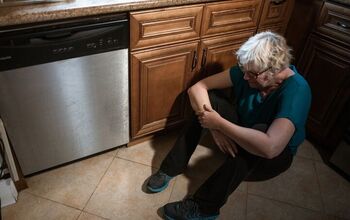Does Extending A Gas Line Require A Permit? (Find Out Now!)

Remodeling can be fun, especially when you’ve watched the transformation happen over a period of time. However, remodeling can raise a lot of questions, especially larger jobs like extending a gas line. A major question is does extending a gas line require a permit?
In the majority of cases, extending a gas line will require a permit. In remodels that require moving around electrical, plumbing, or any other major infrastructure, you will absolutely need a permit. However, in other situations, such as if you’re not moving the appliance, you may not need a permit to extend the gas line.
Remodels can be troublesome when relocating plumbing and electrical lines, so check your local regulations for extending a gas line. You might need several permits depending on the project specifics. Determining what needs to move around will determine what type of permit you may need for the construction.
Do You Need a Permit Service?
Get free, zero-commitment quotes from pro contractors near you.

Types Of Gas Lines And Permits
There are three types of permits you could be required to get to extend a gas line. You might need gas, electric, and local permits, depending on the specifications of your project.
The county or parish you live in may require local permits. Be sure to check your town’s website to find more information. Where you live will determine if they require further permitting before you can begin the work.
Does Extending A Gas Line Require A Permit And Professionals?
There are many do-it-yourself projects you could take on in your home. However, extending a gas line probably shouldn’t be one of them.
Making a mistake in this project could be more costly in the long run. Having a professional inspect the situation and provide feedback for solutions and fixes may be safest.
Someone who is experienced with this type of work might be able to handle the task. However, a professional will be able to extend a gas line for a fixed price safely. Also, a professional can steer you in the right direction regarding the permit for extending the gas line.
Cost Of A Gas Line Extension And Permit
Depending on the type(s) needed, permits typically cost between $50 to $300. Before a professional obtains these permits, they will perform an inspection, which costs between $100 to $150.
The cost of extending your gas line will depend on a few factors. Extending a gas line costs about $12 to $25 per linear foot of necessary line.
The total average cost of extending a gas line is about $522. The price of extending a gas line can range around $120 and $1,350, depending on how much work the process involves. However, the average homeowner can expect to spend between $256 and $790 to extend a gas line.
Several expenses can go into extending a gas line. These expenses depend on the locations of pipes, wires, and accounting for any construction barriers.
The cost of this project can vary greatly. Adding up the cost of materials needed and construction expenses will determine the price for the project.
Steps To Extending A Gas Line
Typically, extending a gas line involves a few steps. Most importantly, you’ll need to buy the correct fittings and gas pipes for the job. Always make sure to turn off the gas to your house before starting to work on the gas lines. This step is crucial for safety reasons.
To extend the gas line, you will need to attach the valves to the pipe and run the new pipe to reach the desired spot. You will need to use a flexible pipe to connect the end of your new gas line to the appliance.
After running the new line and hooking everything back up, you need to test the gas line. It’s essential to ensure that it is airtight.
Can You Move a Gas Line?
Gas appliance connectors are different from the gas piping itself. Gas appliance connectors are the devices that attach the piping to the actual appliance. Think of these like a cord that plugs your appliance into the gas.
Whether or not you can move a gas line will depend on how natural gas is supplied to your house. Also, consider what appliance you’re installing. For example, if you’re hooking up a natural gas water heater, you may require a permit.
A device called a riser runs the natural gas up from underground and into the pipes that people use in their homes. These riser devices are immovable as they are operating the gas supply. However, you can usually move the gas lines themselves around, but you’ll need a permit.
Follow Code To Obtain Permit For Extending Gas Line
Following code will determine whether or not you can obtain a permit for extending a gas line. If you fail to follow the code, the gas lines will not meet the safety requirements.
Underground piping should be buried no less than 18 inches deep into the ground. To be on the safe side, the depth of your ditch should be between 18 to 24 inches.
This will protect any natural soil shifting from exposing the pipe. All states require that gas piping have corrosion protection when running them underground.
Do You Need a Permit Service?
Get free, zero-commitment quotes from pro contractors near you.

Related Questions
Can a gas line run above ground?
Gas lines must be buried when running underground. However, some exposed piping can be closer to the house where it connects and runs the inside lines. There are various other reasons you might have exposed gas piping, but you should always make sure to anchor it safely. If the pipe is exposed to potential physical damage, you need to prevent this from happening. Seal or cover the pipe with metal to avoid any damage from causing a gas leak to exposed pipes.
Can gas lines run through the attic?
The recommendation is to avoid running gas through an attic. The biggest concern for why not is because of the chance that lightning strikes. If lightning strikes a gas line, the heat put off by the strike will create a hole in the gas line. A hole in the line can fill the space with gas, which can ignite and cause an explosion. If lightning strikes and does not cause an explosion, it will more than likely at least contribute to starting a fire. If a house smells like gas, but you can’t locate the leak, this is an immediate safety issue, and you should evacuate.
Can gas lines run through walls?
You cannot conceal gas pipes by running them through cavity walls. Gas lines cannot run through walls, ceilings, or floors for safety reasons. Thin pipes run underneath the house and come up through the foundation to provide gas to appliances. These connector pieces attach the piping to the appliance, but the length of these connectors is strictly regulated. Connector pieces for dryers and gas ranges can only be up to 3 feet long. However, connectors for other large appliances may be up to 6 feet.
Related Guide

Stacy Randall is a wife, mother, and freelance writer from NOLA that has always had a love for DIY projects, home organization, and making spaces beautiful. Together with her husband, she has been spending the last several years lovingly renovating her grandparent's former home, making it their own and learning a lot about life along the way.
More by Stacy Randall



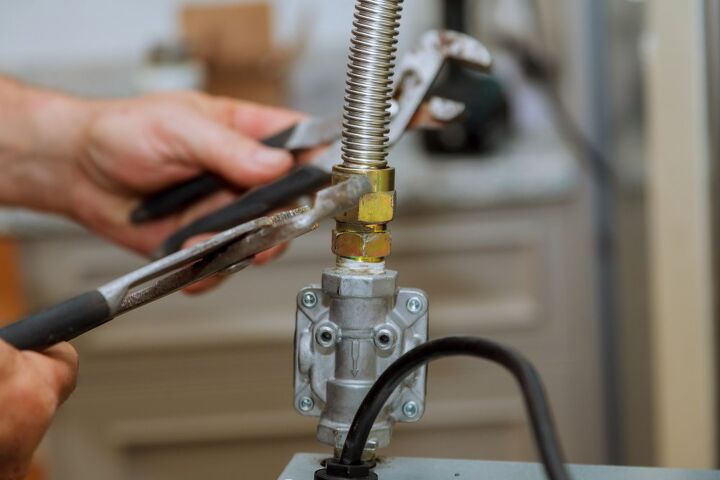







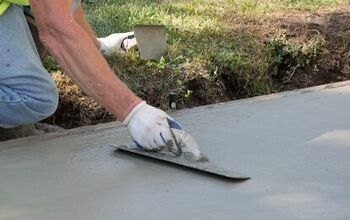
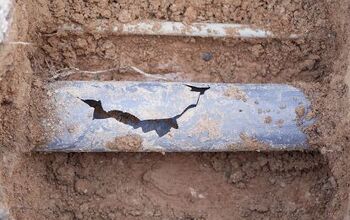


![10 Most Dangerous Neighborhoods in Baltimore [Updated]](https://cdn-fastly.upgradedhome.com/media/2023/07/31/9075655/10-most-dangerous-neighborhoods-in-baltimore-updated.jpg?size=350x220)
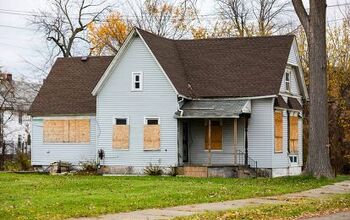






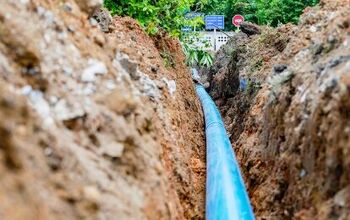


![Cost To Drill A Well [Pricing Per Foot & Cost By State]](https://cdn-fastly.upgradedhome.com/media/2023/07/31/9074980/cost-to-drill-a-well-pricing-per-foot-cost-by-state.jpg?size=350x220)
